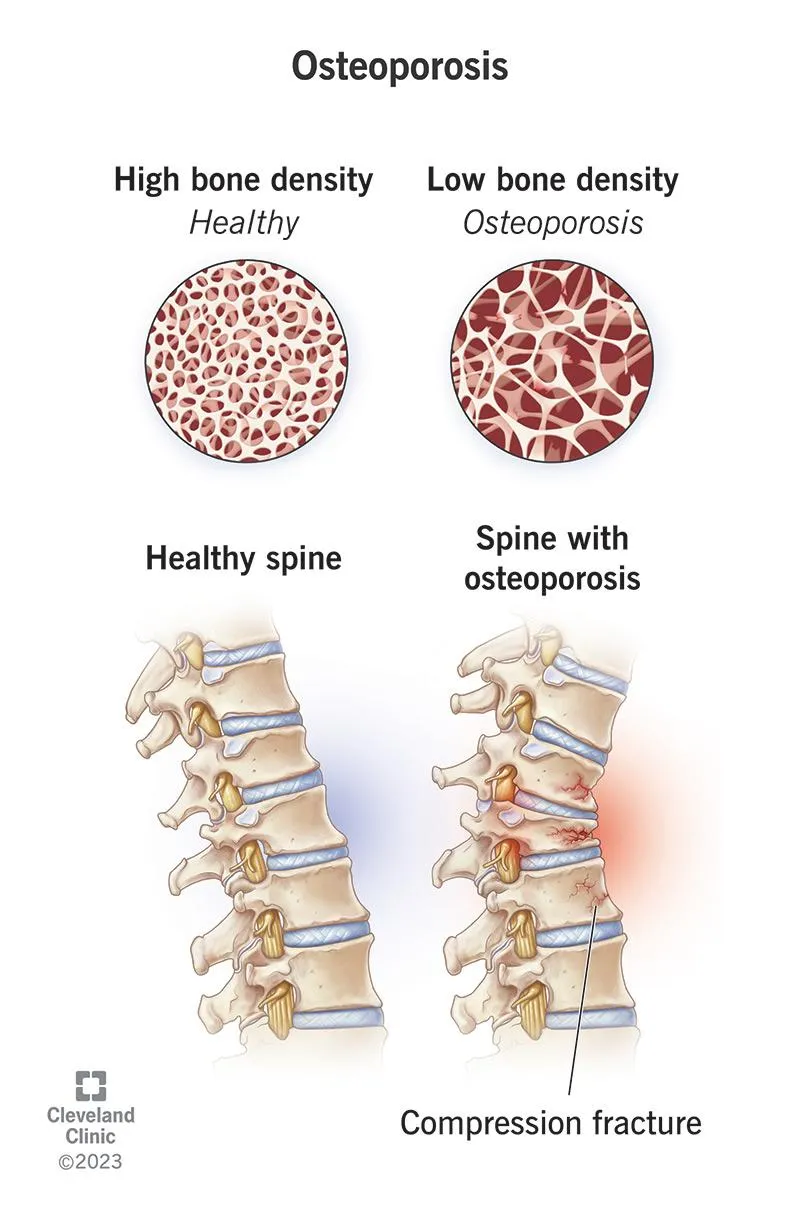
Strengthen Your Bones, Strengthen Your Life
🦴 Osteoporosis (Osteo Health): Strengthen Your Bones, Strengthen Your Life
✅ Introduction
Your bones form the framework of your body—and like any structure, they need care and maintenance. Osteoporosis, often called the "silent disease," causes bones to become weak and brittle, making them more likely to break. But with the right habits and awareness, you can protect your bones and stay strong at every age.
📍 What Is Osteoporosis?
Osteoporosis is a condition where bone density and quality decrease over time. This leads to fragile bones that can break easily, even from minor falls or everyday activities. The most common fracture areas are the hip, spine, and wrist.
Fun Fact: Bone is living tissue that constantly renews itself—but with osteoporosis, the body loses bone faster than it can rebuild it.
🧬 Who’s at Risk?
Although osteoporosis can affect anyone, certain people are more likely to develop it:
🧓 Higher-Risk Groups:
Women over 50 (especially post-menopausal)
Men over 70
Family history of osteoporosis
People with low calcium or vitamin D intake
Smokers and heavy alcohol users
Individuals with a sedentary lifestyle
Those taking long-term corticosteroids
🥦 How to Keep Your Bones Strong
🥛 1. Calcium is Key
Adults need about 1,000–1,200 mg/day
Best sources: dairy products, leafy greens, almonds, tofu, fortified juices
🌞 2. Get Enough Vitamin D
Helps your body absorb calcium
Sunlight is the best source
Also found in fatty fish, eggs, and supplements
🏋️ 3. Stay Active
Weight-bearing exercises like walking, hiking, dancing, and light jogging help strengthen bones
Resistance training builds muscle and supports bone mass
Balance exercises (like yoga or tai chi) reduce fall risk
🚭 4. Avoid Bone Weakening Habits
Quit smoking
Limit alcohol and caffeine, which may reduce calcium absorption
Avoid excessive salt and processed foods
🧪 Diagnosing Osteoporosis
Ask your doctor about a Bone Density Test (DEXA scan)—a painless scan that tells you how strong your bones are.
Other helpful checks:
Blood work for calcium and vitamin D levels
Thyroid and hormone evaluations
Medication review if you’re at risk
💊 Treatment Options
If you’re diagnosed with osteoporosis or at high risk, your doctor may suggest:
Calcium and Vitamin D supplements
Bisphosphonates: Medications that slow bone loss
Hormone therapy: For postmenopausal women
Lifestyle plans to include exercise and fall prevention
🧠 Signs & Symptoms to Watch For
Most people don’t know they have osteoporosis until they break a bone. But here are a few early signs:
Back pain (caused by fractured vertebrae)
Loss of height over time
Stooped or hunched posture
Frequent fractures or injuries from minor bumps or falls
👣 Preventing Falls at Home
Since falls are a major risk, make your home bone-safe:
Install grab bars in bathrooms
Use non-slip mats
Keep walkways clutter-free
Wear supportive shoes
Ensure good lighting throughout your home
🧠 Final Thoughts
Bone health is lifelong health. Whether you’re in your 30s or 70s, it’s never too early—or too late—to take care of your bones. With good nutrition, regular movement, and smart habits, you can prevent bone loss and live an active, independent life.
Strong bones, strong you. Take the steps today for a healthier tomorrow.
